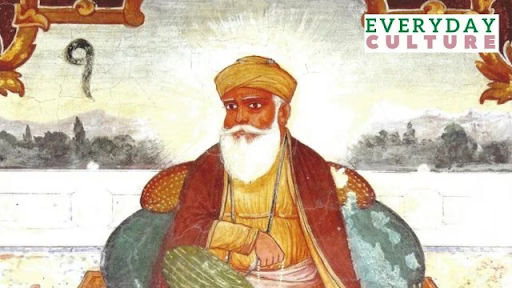Guru Nanak Jayanti: Exploring 5 Facets of Guru Nanak, the Visionary Founder of Sikhism
Introduction:
Guru Nanak Jayanti, also known as Gurpurab, is a significant Sikh festival celebrated with great zeal and devotion. This auspicious day marks the birth anniversary of Guru Nanak, the revered founder of Sikhism. In this blog post, we delve into five essential aspects of Guru Nanak's life and teachings, shedding light on the profound impact he has had on Sikhism and beyond.
Early Life and Spiritual Awakening: Guru Nanak Jayanti commemorates the birth of Guru Nanak in 1469 in the town of Nankana Sahib, now in present-day Pakistan. From a young age, Guru Nanak displayed a keen interest in spirituality, questioning societal norms and religious practices. His profound spiritual experiences and a divine revelation during a meditation in the river set the stage for his life's transformative journey. Guru Nanak's teachings emphasized equality, compassion, and the oneness of humanity.
The Concept of Oneness (Ik Onkar): At the core of Guru Nanak's teachings is the concept of "Ik Onkar," signifying the oneness of the divine. This foundational principle rejects distinctions based on caste, creed, or gender, advocating for a unified and inclusive approach to spirituality. Guru Nanak's emphasis on equality and unity laid the groundwork for Sikhism, a faith that rejects the hierarchical structure prevalent in many contemporary religions.
The Three Pillars of Sikhism: Guru Nanak not only preached a philosophy of oneness but also established the foundation of Sikhism with three essential pillars: Naam Japna (meditation on God's name), Kirat Karni (honest living and earning), and Vand Chakna (sharing with others, especially those in need). These principles guide Sikhs in leading a righteous and purposeful life. Guru Nanak's teachings transcend religious boundaries, offering universal wisdom for individuals seeking a meaningful and ethical existence.
Travels and Interfaith Dialogues: Guru Nanak embarked on extensive travels, known as Udasis, spreading his message far and wide. During his journeys, he engaged in meaningful dialogues with followers of various faiths, fostering interfaith understanding and harmony. Guru Nanak's encounters with different cultures and religions enriched his teachings, emphasizing the universality of spiritual truths. His legacy as a bridge-builder between communities endures, making Guru Nanak a revered figure globally.
Legacy and Impact on Sikhism: Guru Nanak's teachings were compiled into the Guru Granth Sahib, the holy scripture of Sikhism. His spiritual legacy was continued by the ten successive Sikh Gurus, each contributing to the development and growth of the faith. Today, Guru Nanak's principles remain the guiding force for Sikhs worldwide, promoting a way of life that embraces compassion, selfless service, and devotion. Guru Nanak Jayanti serves as a reminder of his enduring impact on Sikh philosophy and the broader spiritual landscape .
Conclusion: As we celebrate Guru Nanak Jayanti, it is essential to reflect on the profound teachings of Guru Nanak and their relevance in our contemporary world. The five facets explored in this blog post provide a glimpse into the life and philosophy of the visionary founder of Sikhism. Guru Nanak Jayanti: 5 things to know about Guru Nanak, the founder of Sikhism encapsulates the essence of a festival that transcends religious boundaries, offering valuable lessons for all of humanity.









Post a Comment